第109章 THE HOUSE IN TOWN(2)
She did think of it that night, very long and painfully. The arguments of her relatives seemed ponderous as opposed to her own inconsequent longing for escape from galling trammels. If she had stood alone, the sentiment that she had begun to build but was not able to finish, by whomsoever it might have been entertained, would have had few terrors; but that the opinion should be held by her nearest of kin, to cause them pain for life, was a grievous thing.
The more she thought of it, the less easy seemed the justification of her desire for obscurity. From regarding it as a high instinct she passed into a humour that gave that desire the appearance of a whim. But could she really set in train events, which, if not abortive, would take her to the altar with Viscount Mountclere?
In one determination she never faltered; to commit her sin thoroughly if she committed it at all. Her relatives believed her choice to lie between Neigh and Ladywell alone. But once having decided to pass over Christopher, whom she had loved, there could be no pausing for Ladywell because she liked him, or for Neigh in that she was influenced by him. They were both too near her level to be trusted to bear the shock of receiving her from her father's hands.
But it was possible that though her genesis might tinge with vulgarity a commoner's household, susceptible of such depreciation, it might show as a picturesque contrast in the family circle of a peer. Hence it was just as well to go to the end of her logic, where reasons for tergiversation would be most pronounced. This thought of the viscount, however, was a secret for her own breast alone.
Nearly the whole of that night she sat weighing--first, the question itself of marrying Lord Mountclere; and, at other times, whether, for safety, she might marry him without previously revealing family particulars hitherto held necessary to be revealed--a piece of conduct she had once felt to be indefensible. The ingenious Ethelberta, much more prone than the majority of women to theorize on conduct, felt the need of some soothing defence of the actions involved in any ambiguous course before finally committing herself to it.
She took down a well-known treatise on Utilitarianism which she had perused once before, and to which she had given her adherence ere any instance had arisen wherein she might wish to take it as a guide. Here she desultorily searched for argument, and found it;but the application of her author's philosophy to the marriage question was an operation of her own, as unjustifiable as it was likely in the circumstances.
'The ultimate end,' she read, 'with reference to and for the sake of which all other things are desirable (whether we are considering our own good or that of other people) is an existence exempt as far as possible from pain, and as rich as possible in enjoyments, both in point of quantity and quality. . . . This being, according to the utilitarian opinion, the end of human action, is necessarily also the standard of morality.'
It was an open question, so far, whether her own happiness should or should not be preferred to that of others. But that her personal interests were not to be considered as paramount appeared further on:--'The happiness which forms the standard of what is right in conduct is not the agent's own happiness but that of all concerned. As between his own happiness and that of others, utilitarianism requires him to be as strictly impartial as a disinterested and benevolent spectator.'